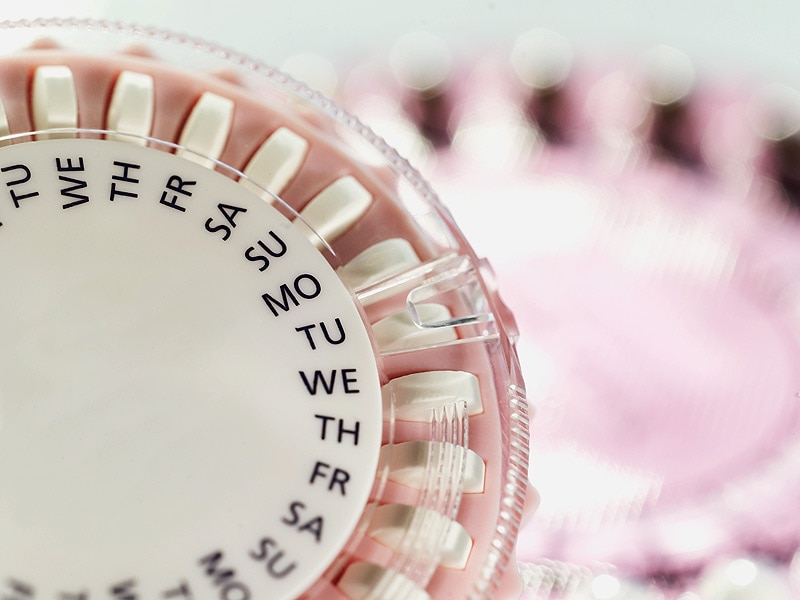Health Centers > Sexual Health Center > Sexual and Gender Identity Disorders > Premature Ejaculation
Premature Ejaculation and Male Orgasmic Disorder
In this section, we review current treatment strategies for the male orgasmic disorders, which are classified in DSM-IV (American Psychiatric Association 1994) as premature ejaculation and male orgasmic disorder. The focus of this chapter is on clinical treatment strategies and tactics rather than on a scholarly review of the existing literature.
Premature Ejaculation
Introduction
Premature Ejaculation- Definition
- Diagnostic Issues
- Prevalence
- Etiology
- Treatment of Premature Ejaculation
- Pharmacological Treatment
However, the clinician's approach to treatment of a patient should be guided by a coherent conceptualization of the patient's problem. Therefore, an overview of male orgasmic problems and attendant diagnostic issues is presented. In addition, we discuss the prevalence of these two disorders and briefly survey theories and research on the causes of male orgasmic disorders.
Premature ejaculation: Inability to constantly control the ejaculatory reflex is a common sexual disorder affecting all age groups. Definition criteria vary, e.g., inability to maintain an erection of sufficient duration to satisfy a partner, or ejaculation that occurs before individual wants it to. Natural biological response is to ejaculate within 2 minutes after vaginal penetration. Ejaculatory control is an acquired behavior that increases with experience.
- Retarded ejaculation: A condition in which erection is normal, or prolonged, but ejaculation does not occur
- Retrograde ejaculation: The valve at the base of the bladder fails to close during ejaculation and the ejaculate is forced backward into the bladder. Erection and sexual pleasure are usually not diminished.
System(s) affected: Reproductive, Nervous
Genetics: No known genetic pattern
Incidence/Prevalence in USA: Premature ejaculation is common (particularly in the adolescent)
Predominant age: All age groups
Signs and Symptoms
- Ejaculation occurring before individual wishes
- Ejaculation does not occur following normal erection (including masturbation)
Causes
- Never any ejaculate
- Congenital structural disorder (Mullerian duct cyst, Wolffian abnormality)
- Acquired (radical prostatectomy, postinfectious, post-traumatic, T10-12 neuropathy)
- Retrograde ejaculation
- TURP (25%)
- Surgery on the neck of the bladder
- Extensive pelvic surgery
- Retroperitoneal lymph node dissection for testicular cancer (also can produce failure of emission)
- Neurologic disorders, eg, multiple sclerosis
- Drugs, eg, amoxapine, desipramine, imipramine
- Retarded ejaculation
- Rarely may be due to underlying painful disorder, eg, prostatitis, seminal vesiculitis
- May be psychogenic as part of erectile dysfunction
- Sympathectomy, eg, spinal cord injury, diabetes mellitus
- Some drugs may impair ejaculation, eg, certain MAO inhibitors, SSRIs, alpha-blockers, antipsychotics, tricyclic antidepressants
- Premature ejaculation
- Sexual inexperience
- High level of sexual arousal
- Fear of sexually transmitted disease
- Anxiety
- Guilty feelings about sex
- Interpersonal maladaptation (marital problems, unresponsiveness of mate)
- Lack of privacy
Male Infertility
Primary infertility affects 15-20% of married couples. Approximately one-third of cases ...
Risk Factors: Listed with Causes
Diagnosis
Differential Diagnosis:
Premature Ejaculation should be distinguished from erectile dysfunction related to the development of a general medical condition. Some individuals with erectile dysfunction may omit their usual strategies for delaying orgasm. Others require prolonged noncoital stimulation to develop a degree of erection sufficient for intromission. In such individuals, sexual arousal may be so high that ejaculation occurs immediately. Occasional problems with premature ejaculation that are not persistent or recurrent or are not accompanied by marked distress or interpersonal difficulty do not qualify for the diagnosis of Premature Ejaculation. The clinician should also take into account the individual's age, overall sexual experience, recent sexual activity, and the novelty of the partner.
When problems with Premature Ejaculation are due exclusively to substance use (e.g., Opioid Withdrawal), a Substance-Induced Sexual Dysfunction can be diagnosed.
Diagnostic criteria for Premature Ejaculation
A. Persistent or recurrent ejaculation with minimal sexual stimulation before, on, or shortly after penetration and before the person wishes it. The clinician must take into account factors that affect duration of the excitement phase, such as age, novelty of the sexual partner or situation, and recent frequency of sexual activity.
B. The disturbance causes marked distress or interpersonal difficulty.
C. The premature ejaculation is not due exclusively to the direct effects of a substance (e.g., withdrawal from opioids).
Laboratory
- Laboratory test results are usually normal
- Post-ejaculate urinalysis will confirm retrograde ejaculation when infertility is a concern
Drugs that may alter lab results: N/A
Disorders that may alter lab results: N/A
Special tests
Look for diabetes, multiple sclerosis, spinal cord injury
Diagnostic procedures
Detailed sexual history
Ejaculatory disorders
Premature ejaculation treatment
Appropriate Health Care: Outpatient
General Measures
- Identification of any medical cause (even if not reversible) helps patient accept condition
- Improve partner communication
- Reduce performance pressure through reassurance
- Use sensate focus therapy
- Techniques to learn ejaculatory control, e.g., coronal squeeze technique or start-and-stop technique
- Use of a variety of resources may be necessary, e.g., psychiatrists, psychologists, sex therapists, vascular surgeons, urologists, endocrinologists, neurologists
- If drugs are a possible cause, consider discontinuing or changing dosage
- Retrograde ejaculation may be helped if intercourse occurs when bladder is full
Surgical Measures: N/A
Activity
No restrictions
Diet
No special diet except for diabetics
Patient Education
See General Measures
Drugs of choice
- Premature ejaculation may respond to topical anesthesia gel applied under a condom for 30 minutes prior to intercourse. Clomipramine or sertraline have been shown to delay ejaculation for 4-6 minutes.
- Switching antidepressants to bupropion, nefazodone, or mirtazapine or possibly trazodone often eliminates drug-induced ejaculatory disturbance
- Retarded orgasm and ejaculation in patients who must continue SSRI drugs may respond to sildenafil
Contraindications: N/A
Precautions: N/A
Significant possible interactions: N/A
Alternative Drugs: N/A
Patient Monitoring
As needed depending on type of therapy
Prevention/Avoidance
Better sexuality education may reduce problems
Possible complications
Psychological impact on some males - signs of severe inadequacy, self-doubt, additional anxiety and guilt
Expected course/prognosis
Often improves with therapy and counseling
Associated Conditions
- Neurological disorders, e.g., multiple sclerosis
- Prostatitis
- Psychological disorders
- Interpersonal disorders
Age-related Factors
Pediatric: N/A
Geriatric: Age alone does not cause ejaculation problems
Others: N/A
Synonyms
- Premature ejaculation
- Retarded ejaculation
- Retrograde ejaculation
- Inhibited orgasm in males
Course
A majority of young males learn to delay orgasm with sexual experience and aging, but some continue to ejaculate prematurely and may seek help for the disorder. Some males are able to delay ejaculation in a long-term relationship but experience a recurrence of Premature Ejaculation when they have a new partner. Typically, Premature Ejaculation is seen in young men and is present from their first attempts at intercourse. However, some males lose the ability to delay orgasm after a period of adequate function. When onset occurs after a period of adequate sexual function, the context is often a decreased frequency of sexual activity, intense performance anxiety with a new partner, or loss of ejaculatory control related to difficulty achieving or maintaining erections. Some males who have stopped regular use of alcohol may develop Premature Ejaculation because they relied on their drinking to delay orgasm instead of learning behavioral strategies.









